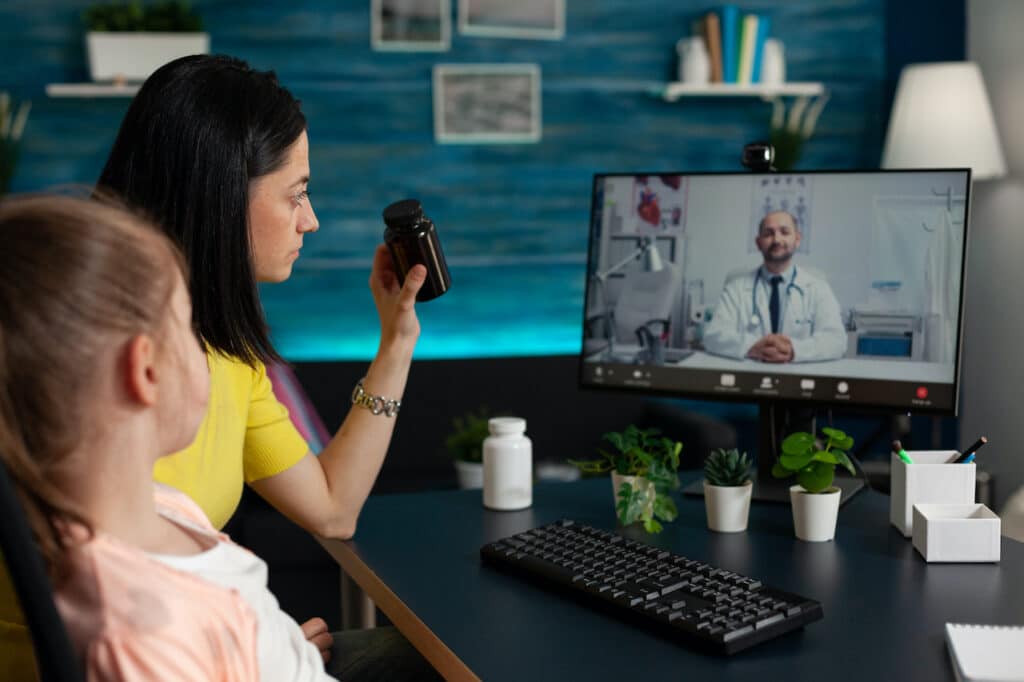
Have you thought about implementing technology in your mental health practice, but aren’t sure where to start? With the fast-growing trend of telehealth, it’s becoming more important for therapy practices to have a solid IT support system in place.
Here is how you can protect your practice from potential IT complications and ensure a smooth transition into telehealth.
What is the Role of Technology in Therapy and Counseling Practices?
Technology plays a significant role in today’s therapy and counseling practices. With the rise of telehealth, therapists and counselors can reach more clients with convenient services and increase efficiency in their practice. Using technology in mental health has also allowed for:
- Better data management and security
- Virtual therapy tools
- Improved communication with clients and colleagues
- Access to online resources and continuing education
10 Steps to Implement Technology in Mental Health Practices
Here are ten essential steps to seamlessly integrate technology into mental health practices:
1. Infrastructure Assessment
The first step in implementing technology into your mental health practice is assessing your current infrastructure.
- Evaluate your current IT infrastructure, including hardware, software, and network capabilities
- Identify any gaps or deficiencies that need to be addressed for telehealth compatibility
2. The Importance of HIPAA Compliance
Complying with HIPAA regulations is essential for protecting client confidentiality and avoiding potential fines.
- Ensure all IT systems and processes comply with HIPAA regulations for patient privacy and data security
- Implement encryption, access controls, and secure communication channels for telehealth sessions
3. Telehealth Platform Selection
Choosing the right telehealth platform is crucial for providing quality services to clients. Consider factors such as:
- User-friendliness for both therapists and clients
- HIPAA compliance and security features
- Integration with existing IT systems
4. Hardware and Software Requirements
Without the right equipment, telehealth sessions can be frustrating and unproductive. Make sure to:
- Determine your telehealth sessions’ hardware and software requirements, including computers, webcams, and microphones
- Ensure compatibility and reliability of hardware and software across different devices and operating systems
5. Network Optimization
A stable and reliable network is essential for uninterrupted telehealth sessions.
- Assess your internet connection speed and reliability to support high-quality video and audio streaming
- Implement network optimizations such as bandwidth management to prioritize telehealth traffic
6. Training and Education
Proper training and education are crucial for a successful transition to telehealth.
- Train staff on using the telehealth platform, hardware, and software effectively
- Educate staff on HIPAA compliance and security protocols for telehealth sessions
7. Technical Support and Troubleshooting
Having a reliable technical support system in place is crucial for addressing any IT issues that may arise.
- Establish a support system for staff to troubleshoot IT problems during telehealth sessions
- Have a backup plan in case of technical difficulties, such as alternative communication methods or rescheduling options
8. Data Backup and Recovery
Backing up client data is crucial for protecting it from loss or theft—especially when you use technology in your mental health practice.
- Implement data backup solutions to protect patient records, session recordings, and other critical data
- Develop a disaster recovery plan to restore IT systems and data in the event of a cyberattack, natural disaster, or hardware failure
9. Telehealth Security Measures
Protecting client data and privacy is a top priority in telehealth sessions.
- Implement multi-factor authentication and secure login procedures to prevent unauthorized access to telehealth platforms
- Regularly update and patch your IT systems to address security vulnerabilities and protect against cyber threats
10. Integration With Electronic Health Records (EHR) Systems
Integrating your telehealth system with your EHR can improve efficiency and reduce duplicate data entry.
- Ensure seamless integration between telehealth platforms and existing EHR systems
- Verify compatibility and interoperability between telehealth and EHR systems to maintain data integrity and continuity of care
Get Exceptional IT Services Through Unity IT
If you’re ready to use technology in your mental health practice more effectively, Unity IT can help. Our experienced team offers IT support services tailored to meet the unique needs of therapy and counseling practices. With our support, you can implement technology seamlessly and securely into your practice, providing exceptional care for your clients.
Contact us today to learn more!

